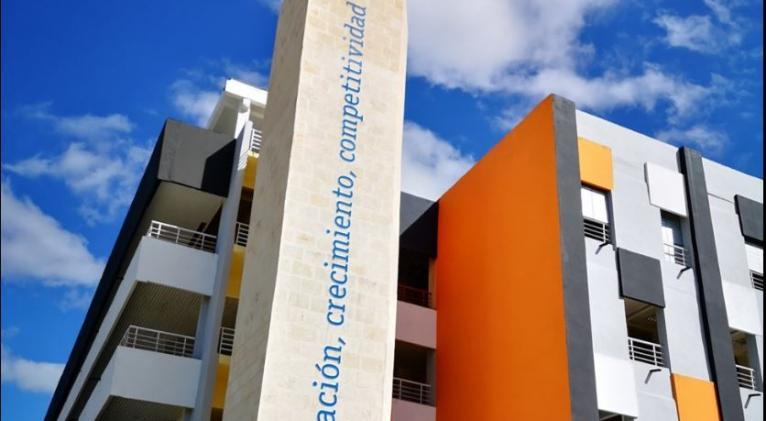The University of Computer Sciences, 21 Years of History
especiales

It may not be a long time yet according to the intervals of history, but 21 years after its birth, the University of Informatics Sciences (UIC) continues to ratify the relevance of its groundwork in a country that fought hard to develop science and technology, when a severe economic and social crisis was still going on.
It was September 2002 and the Leader of the Revolution, Fidel Castro, was planning the guidelines of what he called Battle of Ideas along with the efforts to sustain day by day the life of a people, shaken by the loss of its main market after the debacle of the USSR and the socialist block.
There had been years of huge effort and it was necessary to continue strengthening the support of our economic model, its essential conquests and the political system, which received attacks of all kinds, including intensified interference plans from the enemy.
Fidel Castro was very clear in returning to an old dream and an essential principle of his actions.
Today, in addition to being a fruit of the successful Battle of Ideas, the emergence of the UIC is considered a consistent event with the founding and even emancipatory work of the Revolution and its maximum leader.
Certainly, at that time one would think that Cuba could not launch a proposal like that University, because it was maneuvering to come out, and slowly achieving it, from the economic crisis to which the economic, financial, and commercial blockade imposed by the U.S. along with continued aggressive political actions, including the Helms-Burton Act.
The Commander in Chief himself had defined very early the importance that science and technology should have in the life of Cuban society, shortly after having achieved the triumph of the colossal Literacy Campaign and the Approval of the National Law of the Teaching, in the early 60s.
Including advances in these fields was always part of his ideas for the integral development of human beings, and he had been consistent in this regard.
So the Battle of Ideas and the most comprehensive conceptions of a great statesman converged happily, when the campus opened its doors on September 23rd, 2002.
Many consider, based on their feelings, that the important center was founded on December 12 of that year, when Fidel visited it for the first time.
After 106 days of remodeling, two thousand eight students from all over Cuba began classes in the brand new UIC.
The campus was installed in an old architectural complex, which had had several uses in the past, the first as a reformatory for children and adolescents with delinquent behavior during capitalism (the sadly famous Torrens Asylum).
Located in the Havana municipality of La Lisa, a radio electronic center later operated there. Today it is said that the capital's Science and Technology Park is located in the UIC.
The institution has graduated more than 16 thousand students, and promises to continue advancing like all the educational centers of higher and general education in the country that had to more recently face adjustments and delays in their programs, due to the havoc of COVID-19. .
But its directors, professors, and students are proud to see it standing as an advanced technological city, with its more than 160 buildings located on 268 hectares.
They feel the will to stay ahead and also want to contribute to the updating and modernization of the digital universe of Cuban society as a whole and not of elite sectors, although of course there are fields and specialties.
Train wide-ranging professionals in an uninterrupted manner, who bring the need knowledge of computer sciences to both production cycles and marketing cycles, which are essential to achieve objectives, defying difficulties.
Among the available careers appear Computer Science Engineering, certified by the National Accreditation Board, Bioinformatics Engineering, Biosecurity Engineering and a short cycle program in Network Administration and Computer Security.
The UIC's services do not end with the delivery of the certifications, as it also offers courses for academic training and professional improvement, such as master degrees and other postgraduate specialties, from which hundreds of graduates have benefited.
The entity has a commendable job providing IT solutions. In two decades they have created programs for this purpose that benefited more than 200 institutions and organizations in Cuba.
These are realities that make their professionals feel proud of their duty to society and the national computerization process.
They have been engaged in making significant contributions to La Lisa municipality, with the aim of making it more “intelligent” in accordance with the concepts of technological language and providing it with tools that make it improve its possibilities of social and technological development, a difficult task, but not impossible.
A lot must be attained in a world dominated by powerful transnational corporations that widen at the speed of light the gaps that separate the poor and excluded from the rich, any superficial approach would miss the achievements of the Cuban UIC in that field.
But anyone thinking this way would be wrong: the treasure of knowledge sown by the institution and its useful footprint within society are real and the righteous know how to value them. Congratulations, then, on another year for such a giving staff.
Translated by Amilkal Labañino / CubaSí Translation Staff














Add new comment